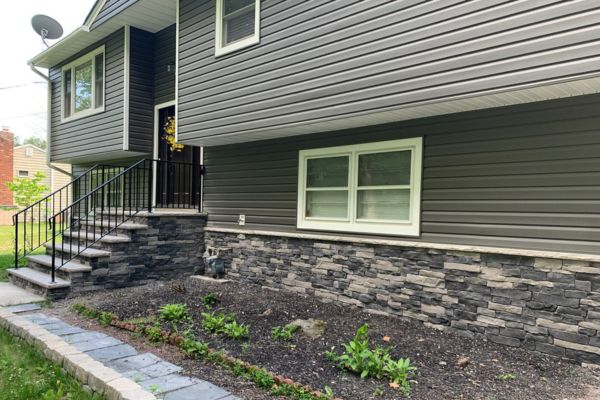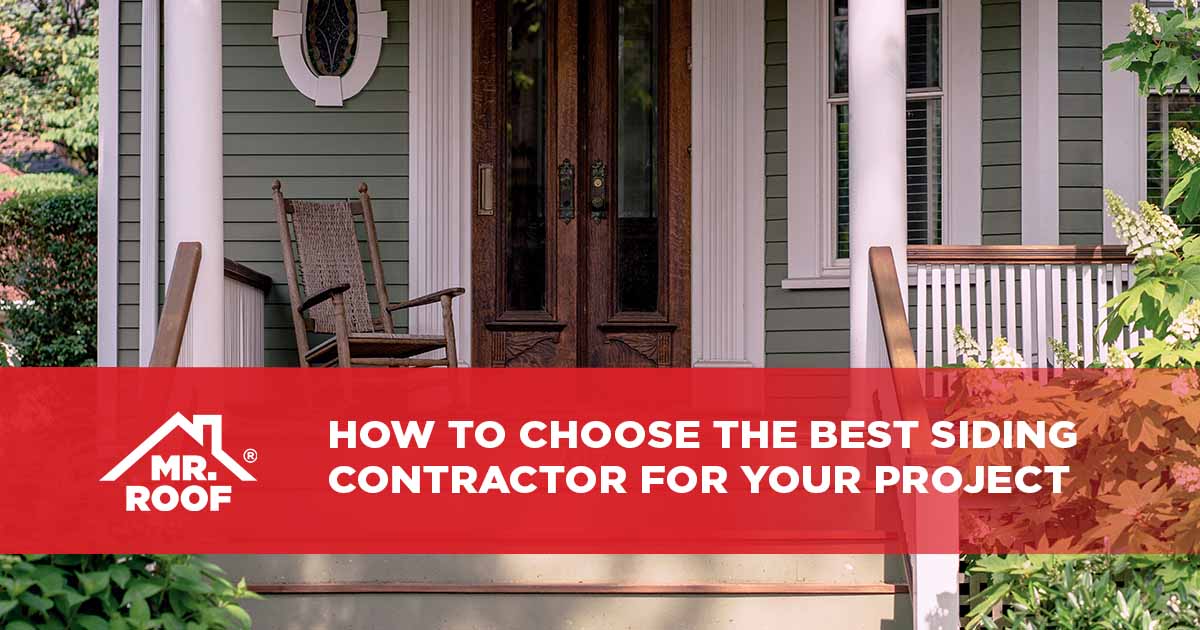Morris Siding Contractor Committed to Excellence in Every Project
Morris Siding Contractor Committed to Excellence in Every Project
Blog Article
The Essential Overview to the Various Kinds of Siding and Their One-of-a-kind Benefits
In the realm of home improvement, picking the ideal house siding is an important decision that affects both aesthetic appeal and functional performance. With so numerous choices to take into consideration, which house siding product really stands out for your specific job?
Wood Siding
Wood siding, a prominent choice for domestic outsides, uses a timeless aesthetic that incorporates all-natural charm with structural honesty. This house siding product is offered in various designs, including clapboard, shingles, and board-and-batten, permitting house owners to personalize their façade to match their design choices. Wood exterior siding is commonly crafted from resilient types such as cedar, redwood, or ache, which are recognized for their resilience and capability to withstand ecological stress factors.
One of the primary benefits of timber siding is its exceptional insulation residential or commercial properties, which can add to energy effectiveness and reduced home heating costs. In addition, wood house siding is naturally degradable, making it an environmentally pleasant alternative when sourced sustainably. Routine upkeep, including paint or staining, can extend its life-span and enhance its look, allowing home owners to preserve the all-natural beauty of the wood.
Nonetheless, potential disadvantages include vulnerability to parasites, rot, and weather condition damage, requiring adequate treatment and upkeep - morris siding contractor. In spite of these concerns, when effectively taken care of, timber home siding can offer a resilient and beautiful remedy that improves the personality of a home while supplying a cozy, welcoming atmosphere
Vinyl Siding
Plastic home siding has become a leading option for property owners looking for a low-maintenance outside choice that combines durability and price. This versatile product is crafted from polyvinyl chloride (PVC), making it resistant to numerous weather condition problems, including dampness and UV rays. Consequently, plastic exterior siding does not warp, rot, or discolor, guaranteeing long-lasting aesthetic allure.
One of the key benefits of plastic house siding is its considerable variety of colors and designs, permitting property owners to achieve the desired try to find their building without the need for frequent repainting. Furthermore, vinyl siding is very easy to set up, which can significantly decrease labor prices throughout construction or restoration tasks.
Vinyl exterior siding additionally adds to energy effectiveness. Lots of alternatives attribute insulation backing, which enhances thermal performance, assisting to preserve comfy interior temperature levels and potentially decreasing power bills. Its smooth surface assists in simple cleansing, calling for just routine cleaning with a yard hose to remove dirt and debris.
Fiber Cement Home Siding
Fiber concrete siding has acquired traction among home builders and homeowners alike because of its exceptional combination of toughness and visual adaptability. Composed of a mix of concrete, cellulose, and sand fibers, this home siding choice is crafted to stand up to severe climate problems, including high winds, heavy rain, and temperature changes, making it a resilient selection for household outsides.

Among the primary advantages of fiber concrete house siding is its resistance to pests, such as termites, and its non-combustible nature, offering enhanced fire safety. morris siding contractor. Additionally, it is available in a wide range of styles, appearances, and colors, enabling property owners to attain their desired visual without compromising efficiency
One more benefit is its reduced maintenance requirements; fiber concrete exterior siding usually requires paint or discoloration every 5-10 years, which is less frequent than other materials. Moreover, its durability adds to a lower total price of ownership, as it decreases the need for constant repair work or substitutes.
Inevitably, fiber cement house siding represents a superb investment for those looking for a durable, attractive, and functional exterior choice, incorporating both kind and function to improve the home's curb charm.
Steel Exterior Siding
The attraction of steel siding lies in its robust sturdiness and modern-day visual appeal, making it a favored choice for contemporary architecture. Readily available in products such as light weight aluminum and steel, steel home siding supplies a series of colors and surfaces, enabling property owners to achieve an individualized appearance that matches their layout vision.

Power efficiency is an additional considerable benefit, as numerous steel house siding items are designed with insulation options that help regulate indoor temperatures. This can lead to decreased energy costs in time. Furthermore, metal exterior siding is commonly recyclable, making it an eco-friendly option for sustainability-minded house owners.
The setup process for metal exterior siding can be relatively straightforward, resulting in a quicker turn-around time for building and construction jobs. In general, metal siding incorporates capability and design, making it a useful choice for those seeking a visually enticing and long-lasting a fantastic read outside surface.
Brick and Rock Home Siding
Brick and stone house siding attracts attention as a classic option that enhances the aesthetic beauty of any type of home. Known for their resilience and low maintenance, these products give a remarkable roi while raising the building's visual charm. Available in numerous colors, special info structures, and patterns, brick and stone can be customized to fit varied architectural designs, from standard to modern.
Among the main benefits of brick and rock siding is their power efficiency. Both products have natural shielding homes that aid control interior temperatures, possibly reducing cooling and heating prices. Additionally, they use superior fire resistance compared to other house siding options, contributing to boosted safety and security.
Another benefit is their long life. Block and stone can last for decades, commonly requiring very little upkeep beyond occasional cleansing. Unlike wood siding, they are unsusceptible bugs and rot, guaranteeing a long-lasting exterior that endures the aspects.
Final Thought
In recap, the option of house siding dramatically influences a home's visual allure, power performance, and upkeep needs. Each kind of exterior siding-- whether timber, vinyl, fiber steel, cement, or brick and stone-- provides one-of-a-kind advantages tailored to different property owner choices and environmental conditions.
One of the key benefits of timber home siding is its outstanding insulation properties, which can add to energy performance and lower home heating expenses. Furthermore, timber exterior siding is biodegradable, making it an eco pleasant choice when sourced sustainably.One of the key advantages of metal siding is its resistance to numerous ecological elements.Power effectiveness is another significant benefit, as lots of steel home siding products are created with insulation choices that help regulate useful link indoor temperatures. Each type of exterior siding-- whether wood, vinyl, fiber block, concrete, or steel and rock-- offers one-of-a-kind benefits customized to numerous property owner choices and ecological problems.
Report this page